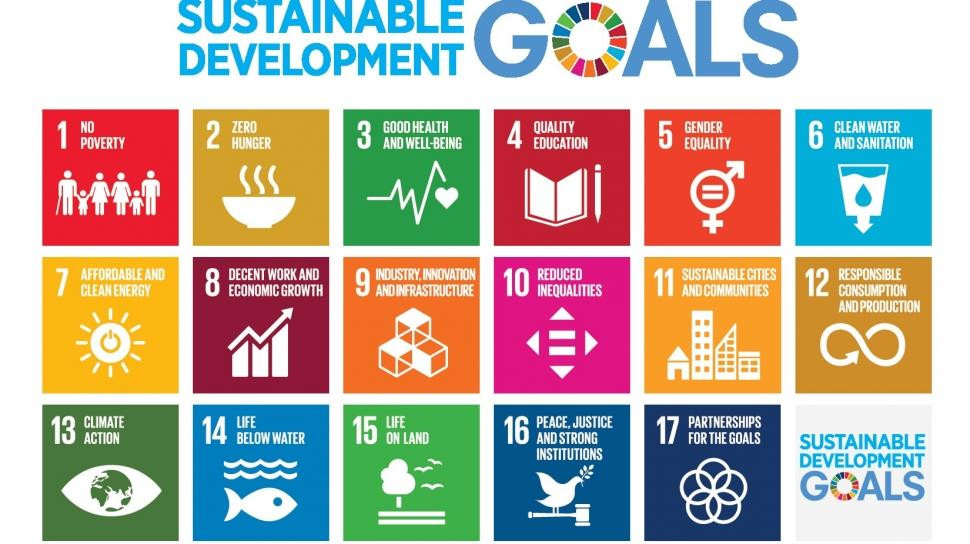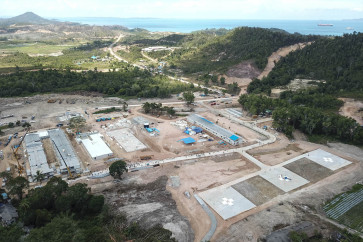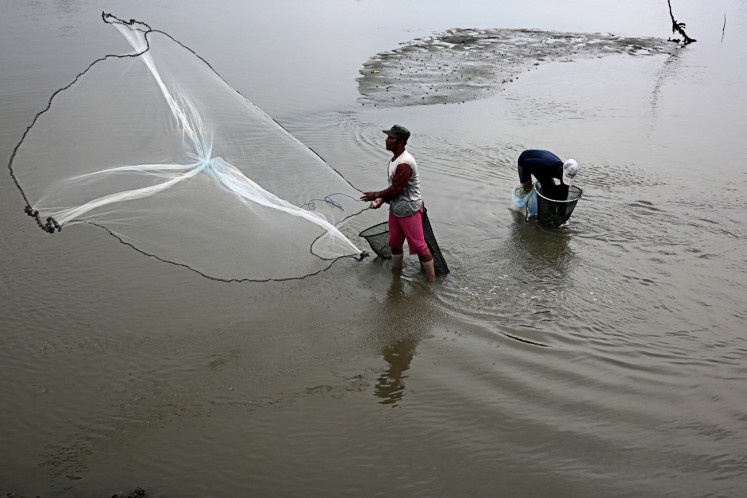Popular Reads
Top Results
Can't find what you're looking for?
View all search resultsPopular Reads
Top Results
Can't find what you're looking for?
View all search results[INSIGHT] Local initiatives keep Indonesia on track of achieving SDGs
The pandemic has impacted Indonesia’s efforts to meet the Sustainable Development Goals, particularly eliminating poverty and hunger, which makes local initiatives particularly important as the country strives to emerge stronger from the COVID-19 crisis.
Change text size
Gift Premium Articles
to Anyone
I
ndonesia is entering the eighth month of the COVID-19 pandemic. Its myriad of impacts have shifted the focus of local governments to respond to, recover from and prevent the spread of the pandemic, to a certain extent at the expense of progress on the Sustainable Development Goals (SDGs).
To mitigate this, the United Cities and Local Governments Asia Pacific (UCLG-ASPAC), initiated activities to increase the awareness and strengthen the capacities of local governments on financing and achieving their SDG programs under an “adaptation of new habits” mechanism. The program, called Localize SDGs, has gained in relevance now that COVID-19 has hit Indonesia hard.
The central government’s response to the pandemic through a national economic recovery plan and stimulus packages is commendable. However, maintaining progress on reaching the SDGs is equally important to bring about sustainable development for both the regions and the country.
UCLG-ASPAC helps local governments ensure their medium-to-long-term SDGs are mainstreamed into Indonesia’s long-standing development challenges and opportunities amid the ongoing pandemic. In the long run, UCLG-ASPAC assists local governments to effectively tie-in their localized SDGs measures with relevant programs within the government’s national economic recovery plan.
Through this initiative, UCLG hopes to show a positive correlation between SDGs and COVID-19 response and recovery.
The pandemic has impacted Indonesia’s efforts to meet the 17 SDGs, particularly eliminating poverty and hunger. COVID-19 is also putting women, children, the elderly, informal workers, as well as state programs to provide quality education, good health and well-being at risk.
A World Bank report states that as many as 115 million people could be pushed into extreme poverty in 2020 due to the economic downturn caused by the pandemic. The report suggests a devastating reversal after decades of progress. It also estimates that, by 2021, 150 million people could be living below the extreme poverty threshold of less than US$1.9 a day.
Another key objective of the Localize SDGs initiative is to build the capacity of local authorities and their associated bodies in handling COVID-19 and its impacts while implementing the SDGs through sharing best practices, handing out information, education and communication (IEC) materials, such as pocket books, digital education through social media, and research to produce policy recommendations.
Furthermore, the initiative aims to help local governments maintain fiscal stability and collaborate with various key stakeholders – NGOs, state agencies, universities, the private sector and civil society.
Recognizing that poverty alleviation remains one of the country’s major concerns, a good example of collaboration to reduce this is the West Java province’s “One Village One Company” (OVOC), a village-owned enterprise program (BUMDes) initiated by Governor Ridwan Kamil in 2018. As of December 2019, the program has produced 272 village-level businesses.
The innovative program offers an opportunity for both women and men to start businesses that adopt digital technology and are assisted by fresh university graduates. Each village receives Rp 100 million (US$6,238) to develop new enterprises.
Through collaboration between local residents, academics, business sectors and the local government, the program exemplifies West Java’s contribution to SDGs on gender equality, decent work and economic growth, eradication of inequalities and partnership for the goals.
Another best practice comes from Central Java through the Jaga Tangga program, under which a community unit (RW)-level task force is formed to care for each other’s well-being. The program aims to empower local residents to identify vulnerable groups, trace community movements and provide necessary assistance, in particular to COVID-19 patients who have to undergo self-isolation.
In the East Java regency of Banyuwangi, there is a program called Rantang Kasih. The initiative, which has been in place for three years, provides free meals to impoverished citizens above the age of 60 years. Through the use of an app developed by the local government, as of December 2019, some 1,000 senior citizens have received two free daily meals delivered through app-based motorbike-hailing services.
In Bali, the initiative takes shape in Integrated Farming System or the SIPADU, which has allowed 1,200 farmer groups to earn additional income by producing more than 650.000 tons of liquid and solid fertilizers. This program is Bali’s contribution to three SDGs: no poverty, zero hunger and responsible production and consumption.
The role of local governments is crucial more than ever at a time when the country is struggling to flatten the COVID-19 infection curve. The Localize SDGs program, which is funded by the European Union and engages the Association of Indonesia Municipal Administrations (Apeksi), Association of Indonesia Regency Administrations and other local government associations, is expected to generate more local initiatives and innovation that promote inclusive societies, safeguard equality, social and economic justice and ensure sustainable community development.
---------
Secretary-general of the United Cities and Local Government Asia Pacific (UCLG-ASPAC)










